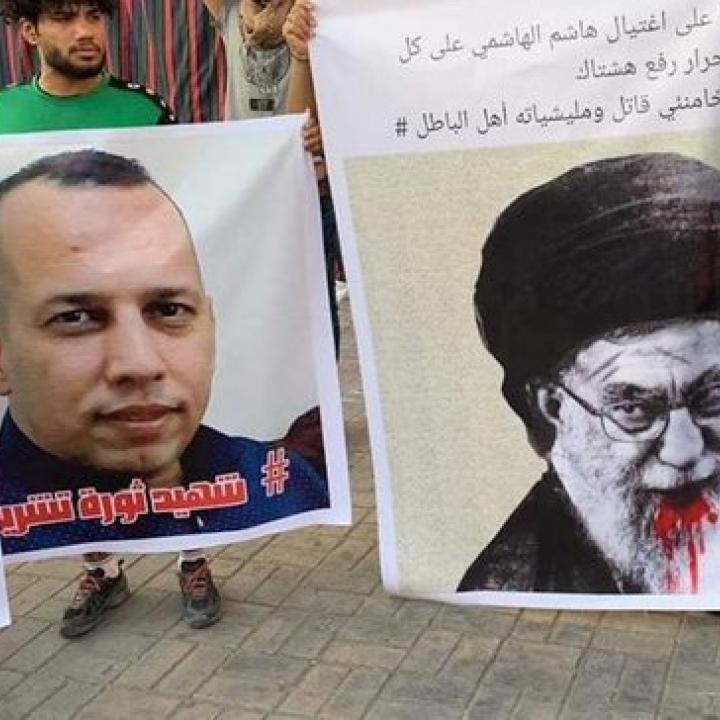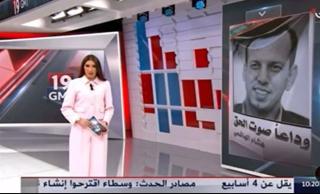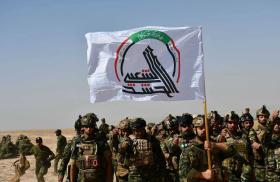
Hisham al-Hashimi’s Killer Escapes Justice

A Kataib Hezbollah hit man was acquitted of all charges despite convincing evidence that he murdered the famous Iraqi commentator and civil society activist.
On March 21, Al-Hadath TV reported what many social media observers had earlier leaked: that the militia-hired killer of Hisham al-Hashimi was exonerated of all charges by Iraq’s militia-influenced judiciary. Hashimi had been shot dead in front of his house in Zayouna, Baghdad, on July 6, 2020. He was killed after publicly criticizing Kataib Hezbollah (KH) on television and identifying high-ranking KH member Hossein Moanes as Abu Ali al-Askari, the nom de guerre for the militia's head of security. Hashimi had also published detailed research days before his death regarding the monetization of illegal checkpoints around Baghdad by KH and another top militia, Asaib Ahl al-Haq (AAH).
The shooter, an Interior Ministry police lieutenant named Ahmed Hamidawi al-Kinani, was detained at the time by government forces and confessed to having been hired by a militia to kill Hashimi. “I pulled my police pistol and shot four bullets into him,” Kinani said in a media segment where he narrated closed-circuit television footage of the slaying. In February 2021, a PBS Frontline investigation separately found that KH had commissioned the hit.
Yet Kinani disappeared after the change of government in October 2022, when Prime Minister Mohammed Shia al-Sudani's cabinet was ratified by a Coordination Framework coalition that included KH and AAH. Hence, he was not present when Baghdad’s Rusafa Criminal Court sentenced him to death in absentia on May 7, 2023.
Under pressure from KH, the government did not seek to reapprehend the unlawfully released Kinani, who was outside Iraq, probably in Lebanon. And on January 2, 2024, the Federal Court of Cassation, run by militia-supported Judge Faeq Zaidan, quashed the death sentence and referred the case back to a lower court to be retried.
The lower court eventually claimed that there was no case to be answered by Kinani, who by this point had recanted his confession and flown back into Iraq specifically for the ruling this week. The court ruled that the original arrest warrant was illegitimate. After being exonerated, Kinani was again moved out of Iraq via Baghdad airport by a Popular Mobilization Forces (PMF) security team.
In 2020, a close friend of Hashimi, Dr. Toby Dodge of the London School of Economics, asked the following in an obituary for the slain activist: "Is it to be the institutionalized forces of law and order, the Iraqi police and armed forces or the militias, who shape the country’s future? Only the reaction of the Iraqi government to the brutal murder of one of its own will decide what the answer will be." Sadly, the answer is very clear: Iran-backed militias are shaping Iraq’s future under the Sudani government.
KH in particular has emerged victorious in the Hashimi case. Besides being a U.S.-designated terrorist organization that killed three Americans as recently as January 28, KH is also a coalition partner with Sudani through its Hoquq bloc in parliament. In addition, the group is part of the Sudani-commanded PMF, a state organ that receives around $2.3 billion of Iraqi government money per year and is controlled by senior KH figures who have likewise been sanctioned as terrorists by Washington. Among KH's long list of violations, it is also still holding Princeton University researcher Elizabeth Tsurkov, who was kidnapped in Baghdad on March 21, 2023, and has been unlawfully detained ever since.






